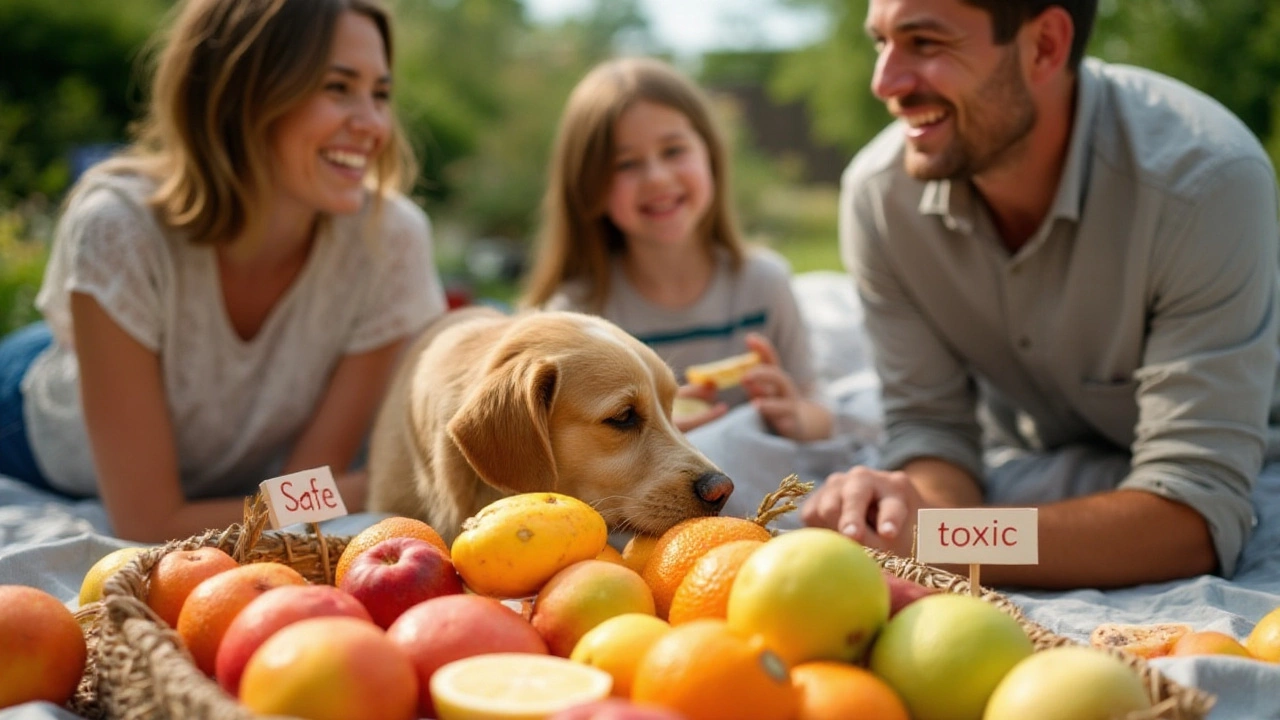Toxic Fruits for Dogs – What to Avoid and Why
We love sharing fresh fruit with our families, but not all of them are safe for our four‑legged friends. Some fruits can make a dog sick fast, and a few can even be lethal. Knowing the red‑flag fruits helps you keep treats tasty without risking health.
Common Fruits That Can Poison Your Dog
Grapes and raisins are at the top of the list. Even a small handful can cause sudden kidney failure. Dogs react differently, but you can’t gamble on a “safe dose.”
Cherries contain cyanide‑producing pits. If a pup swallows the stone, it can lead to breathing trouble, heart issues, or worse. The flesh itself is sugary and may upset a dog’s stomach.
Avocado isn’t poisonous to every dog, but the pit, skin, and leaf contain persin, which can cause vomiting and diarrhea. The creamy flesh is high in fat and can trigger pancreatitis in sensitive dogs.
Citrus peels – especially orange, lemon, and lime skins – hold essential oils that irritate a dog’s stomach and may cause vomiting. A tiny bite of the fruit pulp is usually okay, but the peel should stay out of reach.
Stone fruits like peaches, plums, and apricots have pits that hide cyanide. They also pose a choking hazard. The flesh can be offered in tiny pieces, but many vets recommend skipping them altogether.
How to Keep Your Dog Safe Around Fruit
First, store fruit where dogs can’t reach it. A fruit bowl on a high counter or a sealed container works wonders. If you’re feeding a bite‑size treat, wash the fruit, remove seeds, pits, and skins, then cut it into tiny cubes.
Second, know the signs of fruit toxicity. Watch for vomiting, diarrhea, loss of appetite, lethargy, or unusual thirst. If you suspect poisoning, call your vet immediately – time matters.
Third, choose safer options. Apples (no core or seeds), blueberries, and watermelon (no rind) are generally dog‑friendly in moderation. These give a sweet crunch without the nasty side effects.
Finally, treat fruit as an occasional snack, not a meal staple. Dogs need balanced nutrition from high‑quality dog food; fruit should only add a little fun and extra vitamins.
By keeping a simple list of “no‑go” fruits and practicing safe handling, you can enjoy sharing a healthy bite with your pup without worry. Your dog’s health stays top priority, and you keep snack time simple and safe.

Fruits You Should Avoid Feeding Your Dog
Dogs can eat a variety of fruits, but some are dangerous for their health. This article highlights the fruits that are toxic to dogs and explains the reasons behind their harmful effects. It offers pet owners valuable knowledge on how to recognize these fruits and why they should be cautious. Understanding which fruits to avoid will help ensure your furry friend stays safe and healthy.
View more